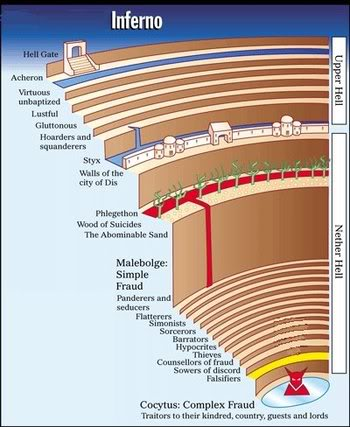Thursday, January 18, 2024
(click here to listen to or read today’s scriptures)
Finding Jonathan in Dante’s Purgatorio
Saul discussed his intention of killing David with his son Jonathan and with all his servants.
Politics. There are always politics. Angry with David because he was praised by Saul’s own people, he became jealous and wanted to kill him. But after he slept on it he decided to speak to his advisers and his son Jonathan. His son was caught in the middle, because he loved both his father and his friend.
As in Congress, there were meetings. Jonathan met with David, and they made a plan. Then Jonathan met with his father, and his father relented in his anger (for the moment). After this Jonathan met with his friend, and finally the three of them got together.
Then David served King Saul as he had before.
Nothing between human beings is simple. We think and think, and the other person thinks and thinks, and we create soap operas in our mind, and suddenly that friend has become an enemy in our mind. Someone needs to step in, and that’s the politician. Talk to one, then the other, and work out a reconciliation.
I wish politics had that reputation rather than the sullied one it has; more helpers would be attracted and less leaches. Political corruption marks the residents of Dante’s fifth ditch of the eighth circle of hell in Inferno. You can’t get much lower than this (there are only nine). But politically trustworthy, honest and truthful people who devote themselves to helping others are not in hell at all. They beckon us from their homes in Paradiso. Nothing fancy about these homes, just that they are built on Rock.

Sister Judith Best chose to get involved in politics, and her understanding of Dante guides her. In her own family she recognized how important humility and acceptance are:
As Dante meets politicians in the Inferno, he begins to recognize his own tendency to believe his way is the truth, discounting those who think differently. Dante begins to reflect on his own political bias, his insistence that his party was the best party. This intransigence is challenged when he meets family members who feel the same about their families.
Dante gets outside, into the night air. He sees the stars. He notices the natural world:
He refers (this link is beautiful) to Earth as “Love’s lovely planet.” Here in the Purgatorio, he also recognizes the importance of art, beauty, music and listening to the silence of the spheres. This intimate connection with beauty becomes the bedrock for faith and respect for others.
As he enters Purgatorio Dante finds a different kind of personality:
Those he meets there help one another and find they can hear opposing ideas with open hearts without becoming angry or defensive.
Hmmm. This sounds accurate in the distant past and the immediate present.
—–
Jonathan gains little in his attempts to protect David, little at least that is not priceless, namely David’s affection and loyalty, long beyond Jonathan’s own physical death. Jonathan’s selfless loyalty affected David deeply, now and later in his life.
Jonathan looks like our hero here. The price he paid did not matter. Later in the lectionary for today Jesus looks like a hero too.
A large number of people came to Jesus, who told his disciples to have a boat ready for him, so he would not be crushed by the crowd. Those who had diseases pressed on him to touch him, and whenever unclean spirits saw him they fell down before him and shout, “You are the Son of God.”
Jesus usually called himself the Son of David. He learned as much from David’s sins as from his virtues. And he also watched Jonathan give himself up for his friend, for his father, for his family. And Jesus knew that he would do the same.
(1 Samuel 18, Psalm 56, 2 Timothy 1, Mark 3)
(posted at www.davesandel.net)
#